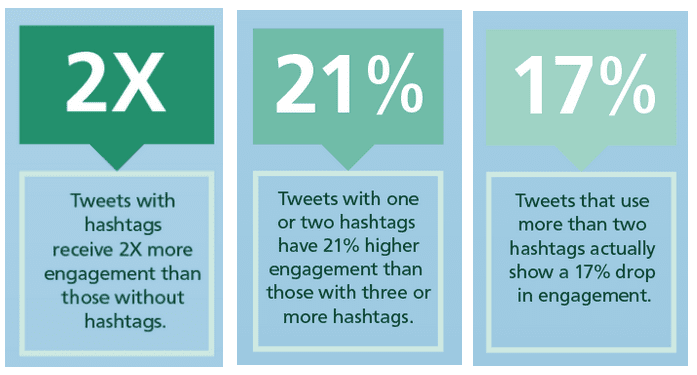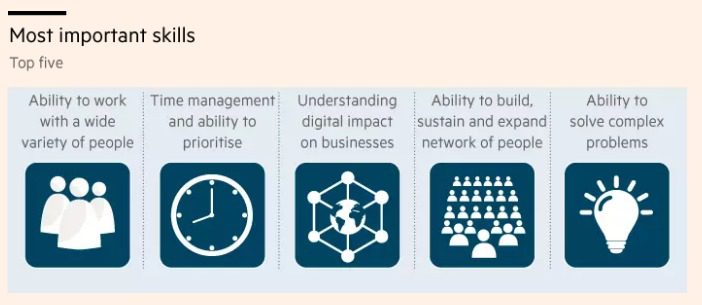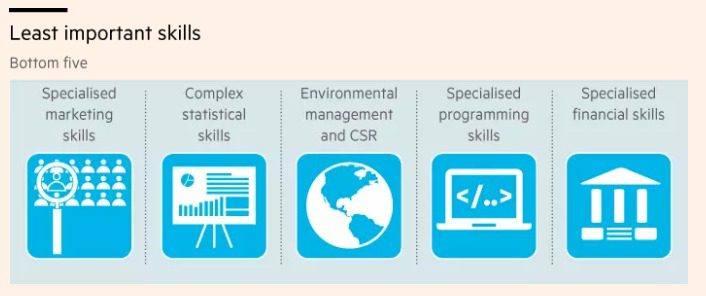Social Media Do’s and Don’ts MBAs Need To Know

Social media can be an impossibly powerful tool. It is the president’s favorite method of communication, after all. Social media can also determine the future for MBA applicants and candidates.
For better or for worse.
U.S. News & World Report found that 35 percent officers interviewed do check out applicants’ social media accounts. What they find might increase a person’s chance of getting in—or could diminish it. Social media could say a lot about a person that may not be clear in an essay or recommendation letter. So why would school’s not at least be safe and check it out?
“To be clear, the large majority of admissions officers do not visit applicants’ social media sites,” Yariv Alpher, Executive Director of Research at Kaplan Test Prep, said. “However, a meaningful number do, as many note that social media can provide a more authentic and holistic view of applicants beyond the polished applications. And in fact, past Kaplan surveys have shown that a majority of students themselves consider their social networking sites to be ‘fair game’ for admissions officers.”
Well, that means applicants and even students must be really intentional—and careful—about how they use platforms like Facebook, Twitter, or Instagram. Otherwise, they could be looking at revoked acceptances or even long-term suspensions.
There is a science to the art of social media postings. And we’ve got you.
Do
Share achievements and wins. Let’s say you’re set to speak on a panel next week; you should tweet about it. Let the world know to be there. When you do speak, make sure someone takes a pic—and share it. Flaunt your accomplishments while staying humble. New job? Let the Internet know. Published a research article? Inform people.
Don’t
Publicize how you celebrate said achievement. Well, unless that celebration is PG. Even then, though, not everything needs to be broadcast to the world, especially if it involves alcohol. Too many college students or teenagers share photos of them on a night out, but that could be a turn off to admissions officers. So unless you’re sharing a cocktail with a celebrity or business goddess, maybe save the photo for family albums, instead.
READ THIS: Wharton MBAs Will Get You Out Of The Social Media Bubble
Do
Be yourself. You want to stay true to you and be an authentic presence online. There are enough imposters acting as a better version of themselves. And sometimes, it’s just too obvious. So let your posts breathe and let officers get a sense of who you are when they take a look at your social media pages. Maybe that means having an inspirational quote in your bio. Whether it’s Kanye West or Steve Jobs says a lot about who you are. And officers should appreciate that.
Don’t
Be reckless about the version of yourself you show. You gotta’ keep it real, but be mindful about what sides of yourself you showcase, too. A cuss word here or there shouldn’t keep a future school or employer from viewing you negatively, but racist or insensitive language would (and should). Certain behavior and ideology are unacceptable, and if that’s how you’re thinking, you need to take a hard look at yourself.
Do
Brand yourself. Ain’t nothing wrong with whipping up a logo and showcasing it online. Or launching a website that you flaunt on your Facebook page. You want schools to know that you’re already business-savvy and show them that you recognize your most valuable business: yourself. Branding yourself through a clever Twitter handle or website domain is a start. Think color schemes and photos. All the pieces of your page speak more than you think, so work them marketing skills.
Don’t
Use that as reason to steal someone else’s work. If you’re going to whip up a logo, make sure you take the right steps to do so—and mention it in a cover letter or somewhere a school will find out. Don’t copy and paste images or use someone else’s. If you show admissions officers you already know how to operate social media and digital skills within legal boundaries, they’ll be even more impressed. Be sure that you take proper steps to legally share images too. You want to sprinkle up your feed with photography (y’know, let them know you’re sophisticated), but don’t just take from a Google search. That can be illegal. Plus, you want to show off that you know about image sharing sites like Flickr or Getty. You’re a business person, remember?
Do
Use hashtags. Schools want students who are with the times. Hashtags are a major part of this time. Remind them that you know when to use them. This will also help others find you if your page is public, so for Twitter, that could mean more followers. On Facebook, that could mean more engagement on posts.
Learning from the hashtag experts could be really beneficial to your overall online presence, despite the cliche connotations. According to Buffer, simple use can greatly increase exposure.

Data via Buffer/Buddy Media
Don’t
Be hashtag-excessive. #EveryLittleThingDoesntNeedAHashtag. Just use relevant hashtags and don’t scare away a school with them. #Please.
Update: Listen to the new “How to Maintain Your Social and Professional Connections” podcast from the Kellogg School of Management for a more in depth perspective.
Advice for Entrepreneurial MBA Students from a Successful Goizueta Alum

Over the last few years, interest in entrepreneurship has increased among MBA students at many leading business schools. According to the 2017 GMAC Alumni Perspectives Survey Report, more than one in 10 alumni run their own businesses (11 percent)—the same percentage as those choosing to work in finance and accounting.
So, it’s not surprising that many top programs are increasing their focus on providing entrepreneurial learning opportunities within their MBA programs. At Emory University’s Goizueta Business School, for example, there are many opportunities to explore entrepreneurship through classes such as “Applied Entrepreneurship,” “Entrepreneurial Practicum,” and “Appcology,” which focuses on emerging forms of applications and services and how they are altering software ecosystems and commerce interactions. There’s an annual Emory Entrepreneurship Summit that is designed to encourage and support entrepreneurs across the university with pitch competitions, keynote speakers, and valuable networking opportunities. And recently, the one-year MBA class class also had an opportunity to hear directly from a successful alumnus about his journey as an entrepreneur.
Matt Fishman, a ’13 MBA and CEO and co-owner of Barking Hound Village, visited campus to talk about how MBA students can make the most of their time in school with an eye toward maximizing the success of their ventures down the road. Barking Hound Village, which Fishman and a fellow Goizueta alumnus purchased in April 2017, is Georgia’s largest dog daycare, boarding, and grooming business with six locations throughout Atlanta.

Inside Barking Hound Village
In addressing students at his alma mater, Fishman’s advice was wide ranging but coalesced around a few key tenets:
Focus on Your MBA Connections
After graduating from Goizueta, Fishman stayed in touch with his MBA classmates. He regularly met up with a group of five alums to discuss opportunities and ideas. It was from these discussions that the thought of purchasing Barking Hound Village came about. “One day, we started to run with the idea, and one thing led to another,” Fishman said in the question-and-answer session with current students.
Fishman’s Goizueta connections proved invaluable throughout the process. He purchased Barking Hound Village with a fellow Emory classmate, Matt Gryder, and since that day has had to protect that connection by putting their “friendship above all of it.” That’s meant a clear division of responsibilities. “We have an operating agreement that’s 50, 60 pages that divvies out duties, equity, all sorts of things,” said Fishman. “It’s constant checks and balances. It’s probably one of the most difficult things.”
Because the connections he made at Goizueta proved to be one of the most important aspects of his MBA experience, he encouraged current students to take advantage of every opportunity to meet new people in the program. “The most valuable thing that you’re going to get out of this place is the network,” he said. “You have to make yourself uncomfortable and sit next to different people, get in different groups, put yourself out there, meet people.”
Don’t Forget to Network
Alumni connections aren’t the only relationships that have been helpful for Fishman. Networking, in general, has been important to his success. For example, it was while Fishman was working as an analyst before business school at security and investment advisory firm Voya and dealing with investments in the pet space, veterinary roll-ups, and retail that he discovered Barking Hound.
As for Fishman’s advice to MBA students, “With networking, get outside your comfort zone.” He continued, saying: “Networking’s tough. Things don’t always come of it, but it’s a game of odds. For maybe 800 people, you get a few back. Be persistent. It gets competitive because everybody’s trying to distinguish themselves. You have to be real, be yourself.”
Understand Your Business
You need to understand your business before you jump into it. For Fishman, he learned a lot of what he needed to know about owning and running a pet business while he was at Voya. “I got access to the books, learned the layout of the land, and built a thesis,” he said. “It’s happenstance, and then you try to line up your cards as much as you can.”
But that was only the beginning. Fishman also took time to understand how to value a dog daycare company before they made any decisions to move forward with a purchase. “The equity side, you have to knock it out in the beginning. So that’s what we did,” said Fishman.
Then, from there, it was all about learning the business. Fishman considers himself a numbers guy, so he had to learn persistence and human capital. He also had to learn about the challenges of being in a service-based business. “You have HR issues,” Fishman stated. “You have leases. For every aspect of it, there’s a legal side that you have to think through.”
Cross Things Off Your Bucket List
For Fishman, starting a business was an item on his bucket list. “It was an itch,” he said. “ I always wanted to be an entrepreneur.” So, he decided to go after it at a time when failure would have relatively little long-term impact. This is the same advice he offers MBA students.
“If you have an idea, or you want to try something new and crazy, whatever, do it,” said Fishman. “If you have ideas, entrepreneurial ideas, take advantage of the fact that you have more time now,” he continued. “Think through or outline some ideas that you might have and chase after them. Look at everything from a downside case. If I’m going to do something entrepreneurial, I don’t yet have a family, so my downside was falling about as low as it’s going to be from here on out.”
So far it has all come together for Fishman since his ’13 MBA, and he encouraged students to take the same risks he did. “There’s nothing to lose with trying to do something and failing in the next nine months. So if there’s a bucket list, it’s to take advantage of your time.”
For more of Fishman’s advice, view the full story at EmoryBusiness.com.
This article has been edited and republished with permissions from Clear Admit
Admissions Tip: Word Limits and Character Counts

MBA candidates naturally have a good deal of information they want—and need—to convey in their materials, and getting the important ideas down under restrictive word counts is a difficult task. While it might be tempting to run a bit beyond the guidelines to slip in that one extra thought, it’s important to keep the reasons for these limits in mind.
Essay Word Limits
In addition to being a medium for explaining your goals and sharing your story, the essays and short answers also serve as a test of the applicant’s ability to communicate clearly and concisely, not to mention follow directions and answer a question. Because business schools and post-MBA employers place a premium on all of these elements, adhering to word and character counts ultimately works to the candidate’s advantage.
Another important consideration is the reader’s time. Because of high application volume and the need to give every applicant fair and thorough consideration, schools are forced to limit the amount of information in each file. If you consistently extend your answers beyond the suggested limits, you are essentially asking the reader to give you more time than they are devoting to the other applicants. In other words, if you were to ignore the limits and overshoot by 30 percent throughout, this might imply that you consider yourself to be 30 percent more interesting than everyone else who applied – which could create concerns for your own lack of self-awareness.
That being said, there can be some leeway. For the vast majority of programs, it’s generally acceptable to exceed the word limit by 5 percent. There are, of course, a few exceptions:
- Caveat #1: If a school gives you a range (e.g., 250-750 words), you should ideally stay within that range.
- Caveat #2: If a school gives you a page limit (e.g., 2 pages), you should stay within that limit – without excessive margin manipulation or font size reduction.
- Caveat #3: In the rare case that a school’s application system truncates the answer once the limit is exceeded, then it is absolutely important to remain under the limit.
In terms of the other end of the length issue, it is unwise to consistently fall more than 5 percent below the limits; this is valuable room in which to share further relevant information about your candidacy. By falling short, it might signal a lack of effort on your part for developing your best application, or a lack of experiences or accomplishments for you to share with the admissions committee. There is one exception to this, the schools’ optional essays. While some of these essays include word count limits, brevity is typically the rule when choosing to include additional information; the word limit should not be the target.
Beyond the long-form essays that most schools require, many programs also include what are commonly referred to as ‘short answer’ questions in their application data forms. These range from schools asking candidates to describe their post-MBA career plans in a sentence or two to broader queries about how a candidate first learned of a given MBA program. In these ‘short answers’ schools often use character limits instead of word count, and their online systems often truncate responses that run long. As such, we advise a more strict adherence to the word count or character limits associated with ‘short answers’
Best of luck to all those fine tuning their applications!
This article has been edited and republished with permissions from Clear Admit.
Which Boston MBA Programs Offer the Best Return on Investment?

A stellar résumé, well-targeted recommendation letters, and a strong GMAT score may be vital in earning a spot in your dream business school, but one factor that may weight heavier than everything else is the return on investment. Will the school be worth it? How successful are its alumni? How do employers feel about the school name on a diploma?
A person needs to know that their time—and money—will amount to success and a well-paying job. If Boston‘s the city for you, here are the top four business schools if return on investment, or ROI for short, is on your mind.
#1) Harvard Business School
This prestigious university might come as no surprise as first on our list. But it’s not at the top for nothing. Home of one of the world’s first MBA programs, Harvard Business School is a bit separate from the main campus itself in Cambridge, sitting in Boston’s Allston neighborhood.
Unsurprisingly, the program’s ROI is highly-competitive. Tuition at HBS currently costs around $72,000. That’s a lot more than how much a student might pay per year elsewhere, even without considering the usually stellar track record of HBS grads. Graduates in 2016 had median base salaries of $135,000 with a median signing bonus of $25,000. Sixty-eight percent received a signing bonus. That’s a lot of people. And it’s a pretty sure thing. Work hard at Harvard, and it appears you’re sure to reap the benefits.
READ MORE: HBS Announces Largest-Ever Scholarship Donation
#2) Sloan School of Management – MIT
At MIT’s Sloan School of Management, students can feel certain they’ll succeed after graduation. Individuals, of course, may determine their own success, but Sloan knows how to get its students there. The school is known for its business offerings, particularly its global Sloan Fellows program. There, students can walk away with an executive MBA in just one year. Sloan has been growing its educational base since 1914 when its “Engineering Administration” course set a business tone in the technical school.
Currently, tuition at MIT Sloan sits at $71,000, which isn’t much less than Harvard’s. The median base salary for 2016 graduates was $125,000, with salary ranging anywhere from $40,000 to $200,000.
The business school can provide a myriad of opportunities, especially through its various centers and initiatives, which focus on, science, innovation, medical research, and more.
#3) D’Amore-McKim School of Business – Northeastern University
This business school is tucked in Boston’s arts neighborhood, the Fenway Cultural District. Northeastern University offers multiple campuses, but the MBA programs take place at the D’Amore-McKim School of Business.
MBA students pay the same tuition for classes online or in person: $1,560 per credit hour. For a year, that’s roughly $28,080—significantly less than the aforementioned Harvard and MIT. So if you’re not ready or can’t afford to drop a bunch of money on costs, D’Amore-McKim might be the program for you. Its graduates go on to make $81,000 a year, which is nearly 66 percent more than yearly tuition. The top base salary for recent alumni is $115,000.
These employment opportunities come quickly: 96 percent of D’Amore-McKim alumni accept a job offer within three months of graduation.Companies like Zipcar and Hasbro, Inc., hired graduates last year. Resources like the Graduate Career Center and the school’s clubs can help students make it. Clubs like the Emerging Markets Club gives students the hands-on experience they need to succeed.
#4) Questrom School of Business – Boston University
The Questrom School of Business at Boston University offers a variety of MBA programs. The first was launched in 1925, but the school went on to add an executive MBA, public and nonprofit MBAs, evening MBAs, and health sector MBAs.
A full-time MBA tuition costs $51,916 at Boston University. The prices vary depending on which program a student decides is right for them, which contributes to the school’s placement on the list. For example, the executive MBA costs nearly double the traditional MBA rate. However, alumni do go on to make that money back. In 2016, graduates’ mean base salary was $100,820. About 92 percent of graduates accepted a job offer just three months after earning a degree, with nearly all taking an internship. Places like General Motors and IBM hired recently hired Questrom grads.
You could be next. But it’s up to you to decide what school makes the most sense for you. You’re onto something with Boston though. The seafood will never end, and the accents will always entertain. Find the city’s best executive MBA program or explore its one-year MBAs if you need just a little bit more info.
Been Waitlisted? Here’s What to Do (And Not Do)

There’s an art to the waitlist, and it can be mastered.
Remember, you’ve probably been waitlisted for a reason. For one, you’re qualified. Otherwise, you would have received a denial. Unfortunately for you, other candidates had a bit more of an edge. Maybe their GMAT scores or GPA was higher. However, your dream school might not be theirs, so there’s always that chance that enough applicants will deny the offer, and the school will, in turn, offer a place to you.
The waitlist can also serve as a sort of test for applicants the school isn’t 100 percent sure about. Here are a few simple tips to help you put your best foot forward while on the waitlist and show your dream school that it needs you just as much as you need it.
Follow Instructions
Schools are pretty clear about how they want you to respond to their notice. If they ask that you not send a letter, then don’t—no matter how much your heart aches to. If they ask for another letter of recommendation, send one as soon as possible. It’d be even more effective if a former colleague or mentor who attends/attended the school or works at it write the letter (assuming they know you personally). Don’t hesitate to do whatever the school asks from you, especially if it is your first choice. That’s the kind of attitude that may lead you where you want to go. But don’t do too much if the school doesn’t ask for it.
Last year, Clear Admit wrote about this dilemma, saying, “ignoring the adcom’s instructions is ultimately going to reflect badly on you. Though policies discouraging communication from waitlisted candidates may seem frustrating or unfair, it’s important to respect and abide by the preferences of each school.”
Clarify Your Intentions
If you plan to wait it out, it may be important to let the school know. If the school is your first choice, let your contact there know as well. Whatever it is that you plan to do next, inform the school. You must do all this, of course, without appearing too cloying and without disregarding whatever instructions the school provided in the waitlist notice. If schools know, however, that you’ll definitely accept their offer, there’s a better chance they’ll offer it to you than that waitlist applicant from whom they never heard back. They also want to know how interested you are, so keep in touch.
“There are candidates who are offered a place on the waitlist and then we never hear from them again. And there’s candidates who don’t overwhelm us with contact but at least stay in touch and help us remember them,” said James Holmen, Director of Admissions and Financial aid at Indiana University—Bloomington’s Kelley School of Business, to U.S. News.
Retake GMAT
Even if a school doesn’t ask this from you, it still might be a good idea to retake the GMAT. Some of the most common gaps in applications include a low GMAT score and GPA. If a school doesn’t accept you the first time around, chances are it had something to do with one of those factors. And your GMAT score, at least, you can change. Unless you scored an 800. Then, you’re a genius, and something is really wrong with the school to which you applied.
Really, though, any time something changes in your application, feel free to inform the school, which includes updated GMAT scores. But if you receive a promotion or a job change, that’s something worth telling them too.
Consider Plan B
This really is a personal decision. Are you in a rush to get that MBA? If so, then it might be a better idea to hop on it as soon as you can and forget that waitlist. You’ve likely been accepted into a number of other MBA programs. But have you been waitlisted at your dream school? Is it one of the best in the world? Well, then, it might be worth waiting it out because you have a chance. If they don’t go with you this time, you can increase your chances next round by doing some of the tips laid out above.
“If you’re wait-listed, it means you’re a great candidate,” U.S. News reported. “You can apply next year. So, honestly, a year plus or minus doesn’t change things.”
Good luck, and chill out. Everything will turn out for the best in the end.
What Employers Do and Don’t Look for In An MBA Graduate

Earning an MBA can often be a huge boost for graduates entering the job market, from opportunities for upper-level management roles to increased salaries.
But securing that job post-graduation can still be an uphill climb. Even with an MBA, students often find themselves struggling to understand how they fit within a changing job market. As the market continues to shift, understanding exactly what employers are looking for in their MBA applicants—and what they aren’t looking for—can be crucial for graduates as they search for and apply for their perfect job.
Thankfully, a recent survey from the Financial Times looked at the job market from the perspective of employers: what they are in need of in terms of MBA job seekers, and how MBA applicants can be more realistic regarding for the roles for which their new degree will qualify them. Unfortunately for many MBAs, the survey results may come as a surprise when they reflect on what skills they hoped their degree would offer in the first place. Yet, a critical understanding of what employers are and aren’t looking for can help job seekers re-frame the way they understand themselves and their prospective careers.
What Employers Want
The survey looked into the most important skills that employers look for in new MBA talent. Perhaps surprisingly, the five most important skills determined by the survey were actually not core MBA subjects. “Soft skills,” such as the ability to prioritize (desired by 72 percent of employers), the ability to work with a variety of people (76 percent of employers), and the ability for employees to effectively manage their time were the most desired and difficult to find, according to the survey.
The most difficult skills to recruit—the skills companies are sorely in need of—were most commonly named as the ability to use social media for the business’ needs, financial forecasting, big data analysis, brand storytelling skills, and the ability to train others.

The five most important skills, according to the Financial Times survey.
What Employers Don’t Want
The least important skills for an MBA, according to the survey, were those most often thought of as “hard skills,” such as specialized skills in marketing, finance, programming, or complex statistical skills. Similar skills were mentioned as the least difficult skills to recruit—the ability to solve complex problems and specialized marketing skills are often seen as common fare among MBA graduates and therefore a candidate with such skills won’t necessarily stick out.
Many surveyed employers said that past experience with MBA-holding employees had left them disappointed, with the degree-holder having difficulty turning concepts into practice. Many employers said that, while an MBA degree may be a nice bonus for a job candidate, the overall hiring decision is more based on the individual’s industry qualifications, rather than their degree.

These skills may be less necessary than MBA grads anticipate.
What Do You Need To Do?
So far, the results of the Financial Times survey may be disappointing for MBAs who have worked hard for their business education. No need to get concerned just yet, however. The employer response may have less to do with the idea that the skills of an MBA grad aren’t necessary in a company and more to do with a perception gap; the belief that business schools will not teach students the skills they need, and therefore that they do not need MBAs at their company.
Most of the work in convincing a skeptical employer your degree is worthwhile is simply convincing them that the skills learned as part of your degree are the same ones they desire. Many business schools are attempting to change the way MBAs are perceived and the type of skills that are associated with graduates. Julie Morton, Associate Dean of Careers Services and Corporate Relations at Chicago’s Booth School of Business, has already set half of her team to the work of promoting the value of MBA-holders in the workforce. Overall, much of the work will fall on business schools to market their graduates as holding the skills most desired by recruiters.
On a more individual level, however, the survey results also indicate that MBA grads can be more judicious in the roles that they apply to and the way they market themselves to potential employers. By focusing on the skills desired most—and the hardest to recruit—and ensuring that employers know these are the exact skills an MBA education offers, both employer and employee can benefit.
